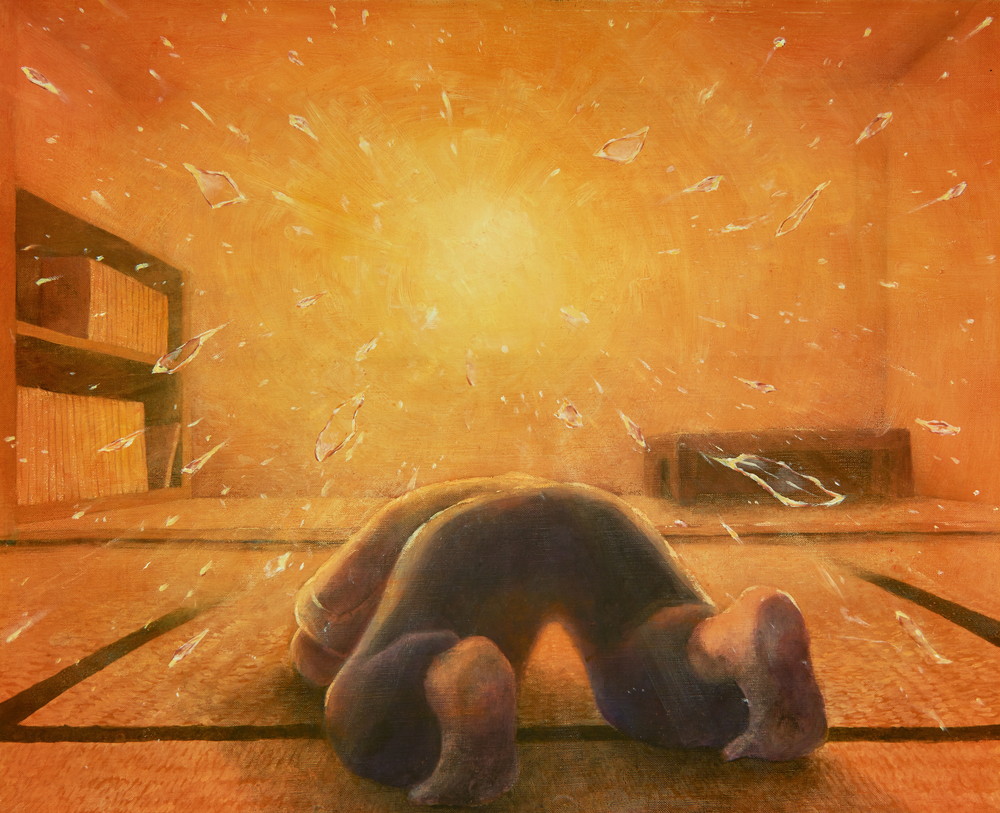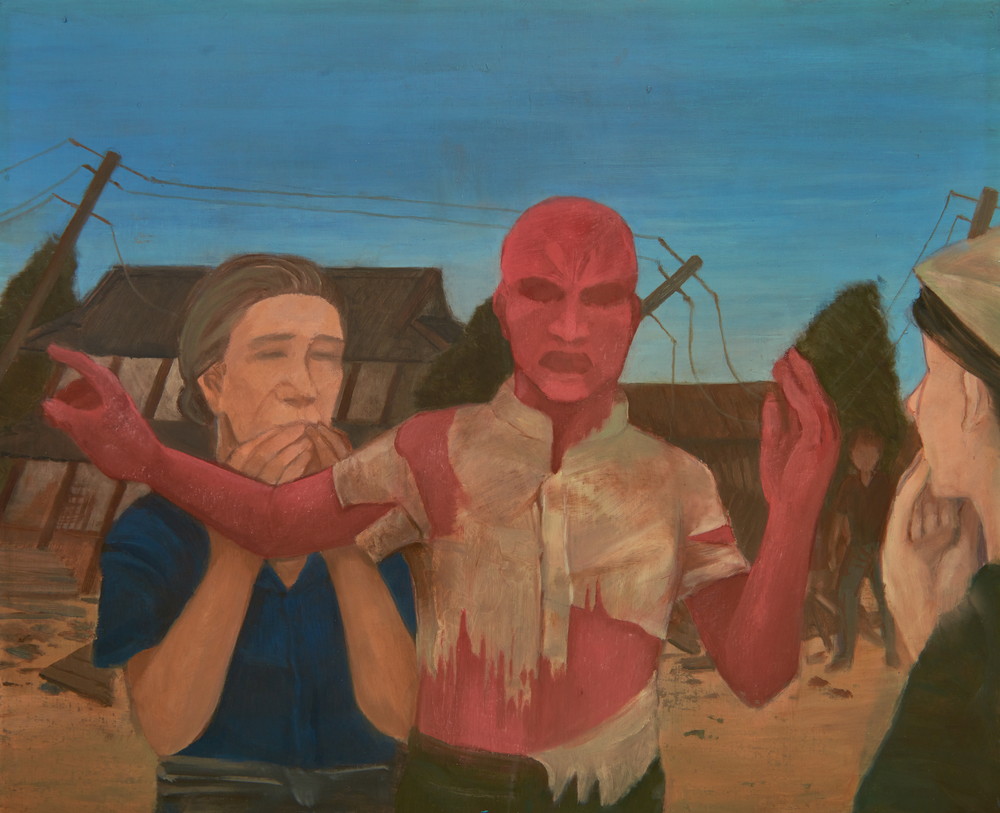Sadae Kasaoka
Losing both my parents all at once, I had no words to describe my loss
2. August 6th
On that day, the well-known Kangensai Festival, listed as one of the Three Great Boat Festivals of Japan, was to be held at Itsukushima Shrine on Miyajima Island. Since 1638, Eba in Hiroshima City together with Aga in Kure City have taken on the role of towing the Kangen boat. In Eba, a celebration was to be held for the fishermen who returned to town after completing their role at the festival. At my house, we also had plans to cook a feast and the entire town was looking forward to the festival.
My parents left home early in the morning to help an acquaintance move out of their house, in Zakoba-cho, located at the center of the city (presently Kokutaiji-machi, Hiroshima, 1km from the hypocenter). Their house was to be demolished as part of building demolition work. I assume they left early because they had to return home early enough to cook food for the festival and also to avoid working in the hot mid-summer sun. By the time the air-raid warning sounded around 7a.m. and I evacuated to the air-raid shelter, they were already gone.
Until the day before, I had been mobilized for building demolition work, but from the 6th, I was to be mobilized to work at a factory near Hiroshima station. However, the 6th coincidently turned out to be the once-in-a-month no-electricity day and the factory was closed, so I was home with my grandmother. After the air-raid warning was lifted around 7:30a.m., I returned home, ate breakfast, cleaned up, did laundry and was outside hanging the laundry.
The atomic bomb exploded when I had just finished hanging the laundry and walked into the room connected to the veranda. Right outside of a large window in the room, about 2.5 meters wide, I saw a beautiful light that looked like a mixture of a sunrise with the color orange. At that moment, the glass window shattered into pieces, and the blast blew me against the wall. We often hear the expression, “Pika-Don,” to describe the A-bomb, but I did not hear the “Don” sound. To me, it sounded like “Du,” a loud /d/ sound for letter D. Then I just fainted.

I eventually came to my senses, and when my hand touched my head, I felt something slimy. Although I was bleeding, I did not feel any pain. I thought something terrible had happened and loudly called, “Grandmother, we need to get into the air-raid shelter!” My grandmother who appeared before me was safe with no injuries. Together, the two of us went to the air-raid shelter in the neighborhood. There were already a few people there.
No one knew what had happened. Someone said, “Perhaps a gas tank exploded.” After a while, I went outside. I initially thought that my house was bombed, but there were houses in the neighborhood that were completely blown down and flattened. Maybe because it was sturdy, my house only tilted, but rooftiles and mud walls were scattered everywhere.
Around 9:00a.m., a man from the neighborhood returned from the city center, approximately two kilometers from the hypocenter, and said, “Hiroshima is in an awful state. There was a flash and everyone was wiped out.” When I heard that, I suddenly began to worry about my parents. Where it was uncovered by his clothes, the man’s skin had peeled and hung down, showing pink like a peeled peach. I heard he died a few days later. When parents of my classmates from the neighborhood heard this story, they headed toward the city center to look for their children who were mobilized for building demolition. I was worried about my parents, so I asked a relative if he would go and look for them. He returned about two hours later and told me that he could not go into the city center because of the raging fire.

When I was near the air-raid shelter, I noticed that it started raining all of a sudden even though it was sunny until then. I remembered about the laundry I had hung earlier and rushed home, but all the laundry had been blown away somewhere and I couldn’t find it. When I went outside after it had stopped raining, I noticed a puddle of water that collected in a dent on a garden stone. It was perplexing because the water was not clear, but black. I did not notice that it was black when it was raining.
That evening, Kichitaro unexpectedly returned from Kobe. Since he got a few days off, he decided to come back to Hiroshima, not knowing about the a-bombing. He told us that on that morning, the train he was on had stopped before it got to Hiroshima Station, so he found his way home on foot, searching for places he could walk.
Soon after Kichitaro returned, a relative from Oko (present Minami-ku, Hiroshima) came by boat to tell us that our father was at their home and we should go get him. My father was a volunteer firefighter, so he probably figured out from the direction of the wind that it would be safer to flee to our relative’s house in Oko, located eastward. On his way there, he stopped by the Army Kyosai Hospital (present Hiroshima Prefectural Hospital) in Ujina to get treatment. However, a large number of injured victims had rushed to the hospital, where those who still had a chance of survival were prioritized, and those who were thought to have no chance were completely ignored. My father gave up on receiving treatment and somehow managed to arrive at our relative’s house. Kichitaro immediately got the pull-cart we had at home and headed to Oko.